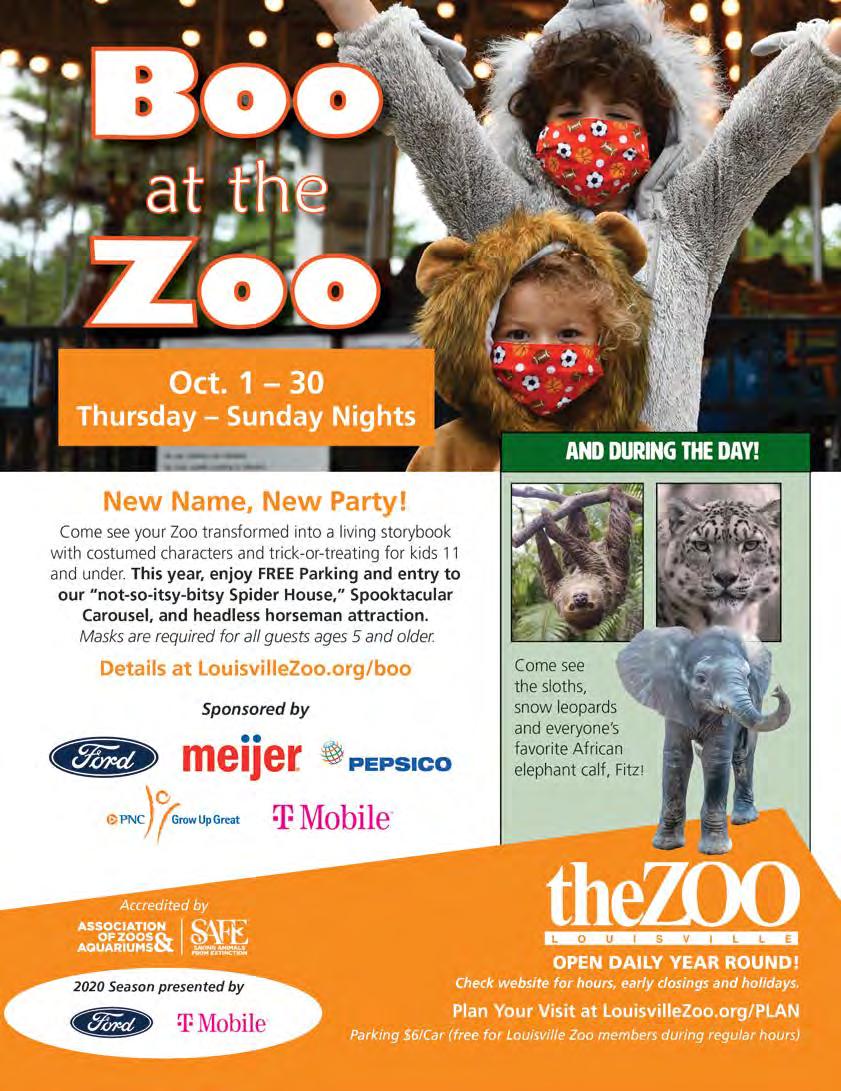
8 minute read
Excellence in Education Honorees
EDUCATIONAL HONOREES Most likely to...
...push for excellence.
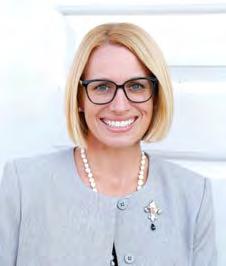
...empower students.
...change lives.
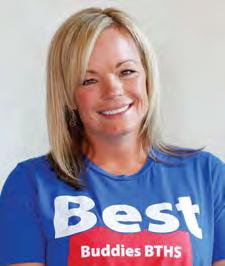
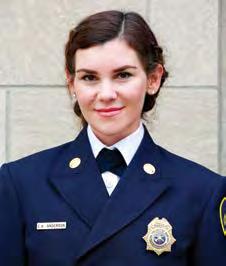
...save a life.
Excellence in Education Honorees
By Tiffany White Photos by Erika Doll
They are changing the educational landscape through their innovative ideas and dedication to seeing every student achieve academic success. Read on to find out how these educators are bringing joy into the classroom.
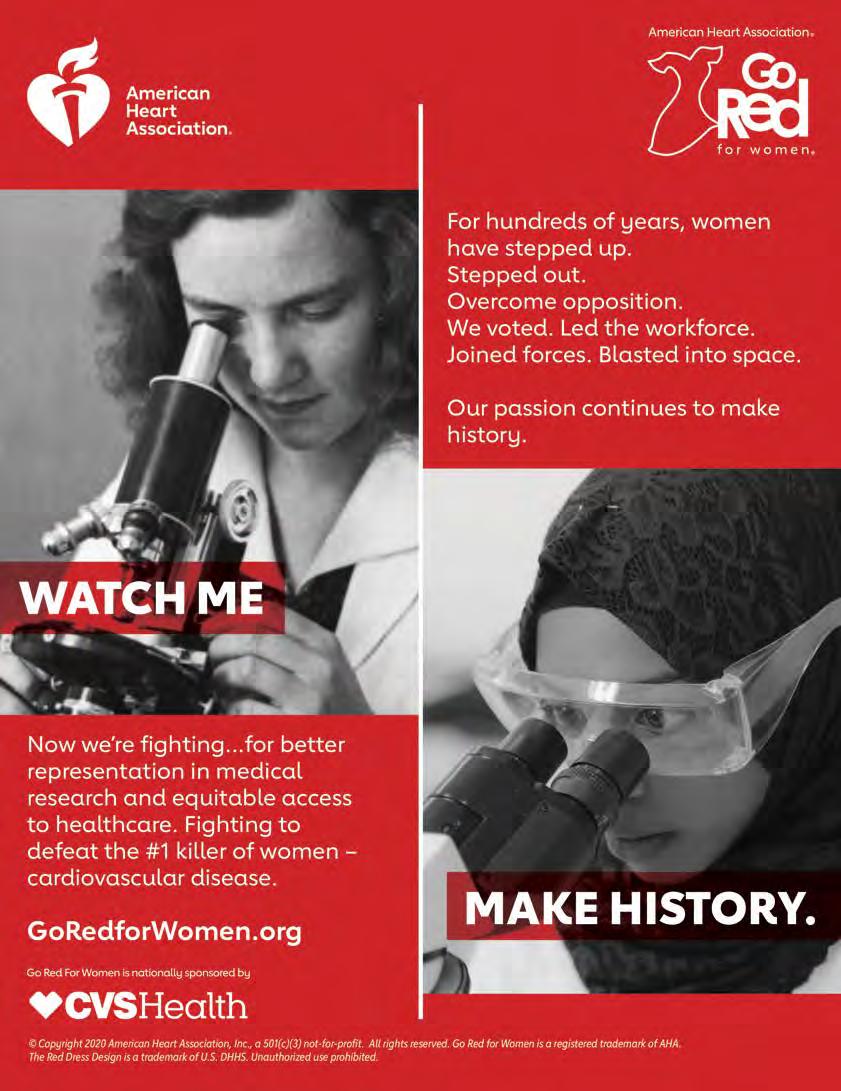
EDUCATIONAL HONOREES
n Michelle L. Dillard Assistant superintendent for middle schools at Jefferson County Public Schools CATEGORY: Education Administrator
Michelle Dillard is empowering educators with the knowledge needed to help students achieve academic success in spite of any barriers they may face. “Failure is not an option. No excuses, just results,” she says. Michelle has been working in education for 24 years, which includes a background in special education. Currently, she is teaching middle school principals how to improve their leadership skills and is encouraging them to share what they’ve learned with other educators within the district. This fall, Michelle is teaching the Jefferson County Public Schools Six Systems and Pillars at the University of Louisville as part of their teacher residency program. She says collaboration and “learning by doing” are important aspects of her teaching method.
Defining moment: I was a principal at Seneca High School, and it was a low performing school in the 5th percentile in the state in 2011. I worked hard to teach my teachers, staff, scholars, and parents they are somebody. Within three years of being the principal we worked hard and went from the 9th to the 12th to the 42nd percentile in the state. I left Seneca to be the assistant superintendent for the district.
What students need now: They need someone to believe in them and encourage them to move forward with learning no matter what and not to be afraid to ask for the tools needed to learn. Parents must know their rights and what to ask for.
Dealing with virtual learning: I suggest that school districts put committees together to help tease out all the things needed for teachers for virtual learning. I would then suggest that teachers have time to plan virtually or in person following the CDC guidelines weeks before it is time for the virtual learning to start. Give teachers and schools some guiding principles and then let them make the experiences their own to fit their classroom.

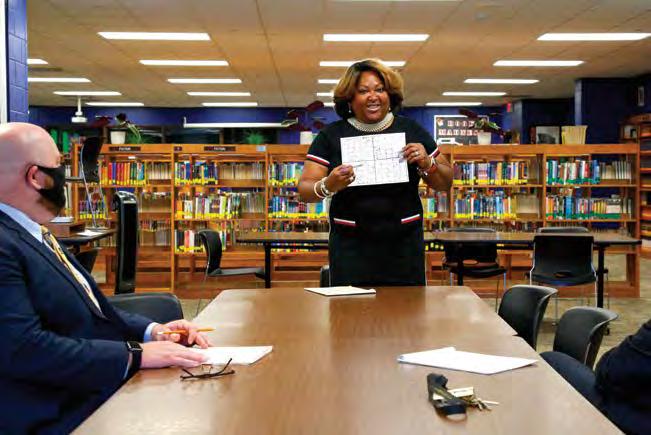
l Ashby Anderson Sergeant, Fire Inspector 1, Public Education at the Louisville Fire Department CATEGORY: Creative Education
Ashby Anderson spent nearly 10 years as a frontline firefighter, but now she is using her skills and knowledge to stop the fires before they start. She is teaching fire and life safety to kids, college students, older adults, healthcare workers, businesses, and school administrators. Ashby says it is important for people to understand how to make responsible decisions regarding fire safety. “It is so much more than showing off our trucks and firefighters. It’s finding who needs what in terms of safety information and providing that information on a level that it is well received and promotes a behavior change,” she says.
Teaching technique: Conversation paired with relevant data references supplemented with a lot of visual aids. Most of the time I have one opportunity to get the information across, so I engage them with discussion and relevance. Our high risk groups have learning barriers so I use visual aids to reinforce messages.
Changes she hopes to see: It makes sense to integrate fire and life safety into science and math lessons at primary and middle school levels. Fire is a chemical reaction, and by capitalizing on this we could kill two birds with one stone. I’m currently working on piloting a common-core-aligned fire safety program centered around smoke alarm awareness for the Metro’s elementary schools in high risk areas. Sound Off With The Home Fire Safety Patrol has enormous value because it teaches smoke alarm awareness, importance, and purpose. It is also common-core-aligned and meets various math, language arts, and national health education standards as well as offers free smoke alarm installation for students whose homes are without.
Best Icebreaker question for students:
Introduce and be myself. The uniform can be intimidating, and it’s important I bring us to a place of mutually comfortable conversation. If there is a relevant piece of data that surprised me, I use that for the shock factor. I encourage participation from the beginning by asking questions like, “Does anyone know how hot sparklers burn?” or “How many of you have ever burned yourself cooking?”
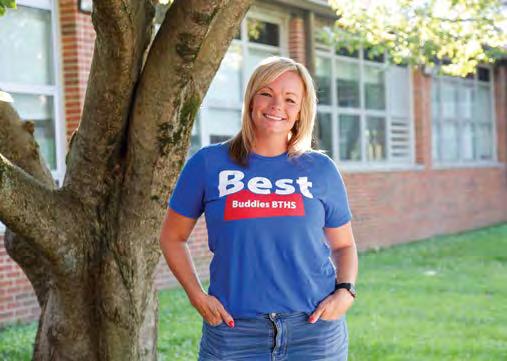
m Sandra Dawn Foley Special Education Teacher, Best Buddies Advisor at Butler Traditional High School CATEGORY: Special Needs
Dawn Foley discovered her love of teaching while interning as a college student at a community center. “I was a peer tutor in my very classroom when I was a senior at Butler and remembered how much joy the students brought me. I knew I wanted to work with the special needs population but never imagined I wanted to be a teacher. I took the plunge and applied for grad school, realizing that inclusion in education was my passion.” Dawn also manages the school’s peer tutoring program, which selects senior students who apply to work in their classrooms. The tutors assist the students with their learning and create a socially inclusive atmosphere for them within the school. “I want all of my students to have a place they feel that they belong in, that they can relate to, that they can trust,” she says.
Defining moment: I had a peer tutor who looked at me and said ‘thank you.’ Before she became a peer tutor in my class, she had other desires for what she wanted to be when she grew up. Her heart and passion changed when she saw the joy that her job brought her every day and how she was changing the lives of her students and peers.
Changes she hopes to see: I would like for education to be respected. Not by one group or another in particular but by society as a whole.
Best thing: I think we have done a very good job of rolling with the punches and figuring out how to make NTI work. I had zero experience creating an online classroom and teaching remotely. Now we are taking what we have learned that works and does not work and making it even better. Virtual classrooms are thriving, and students are continuing to learn, despite this crazy virus.
PAGE 46 >> Today’s Woman / October 2020 45
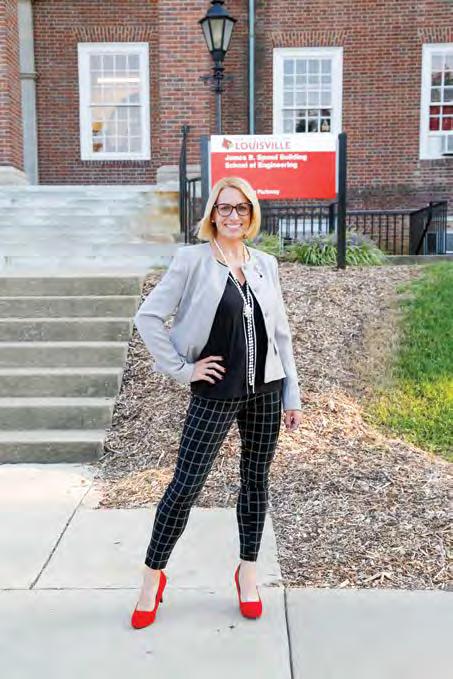
l Dr. Heidi Neal Director of Student Success and Student Affairs at University of Louisville, JB Speed School of Engineering CATEGORY: School Leadership
Dr. Heidi Neal creates abundant opportunities that cater to the needs of every type of student. Heidi oversees the college’s academic counselors, leadership development, diversity [program], enrollment management, and retention initiatives, which serves nearly 2,000 undergraduate engineering students. She and her team developed partnerships with the West End School, Nativity Academy, and Central High School, which included installation of makerspaces within the schools. These makerspaces are equipped with electronics, tools, and engineering kits students can use to work on projects. Heidi says students must learn skills to help them adapt to impermeability of college and life. “I believe it’s important for hands-on activities and learning through doing ... getting stuck and problem-solving and then celebrating the success,” she says.
Defining moment: I knew I was in the right field when I received my first note from a student, which stated that a service learning project I led changed her life forever and made her a better person. It was the moment I knew I could positively impact my community and the next generation of leaders.
Dealing with virtual learning: Our virtual situation has allowed us to think differently and out-of-the-box on everything from supporting each other to intervention programs for students. It’s been a great opportunity to think about how we can expand our support services and programming for students outside of campus.
Best Icebreaker question for students:
“What cookie would you be and why?” It’s a great insight into a person’s mindset, and who doesn’t love cookies?
Soft skills you value: The soft skill I value the most is the ability to care and the ability to understand a person’s experience. If a person cares about another person or the situation, this leads to genuine and positive solutions.
